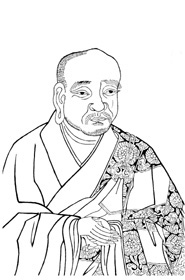A Quote by Anne Carson
Aristotle says that metaphor causes the mind to experience itself in the act of making a mistake.
Related Quotes
When one is rising, standing, walking, doing something, stopping, one should constantly concentrate one's mind on the act and the doing of it, not one ones' relation to the act or its character or value... One should simply practice concentration of the mind on the act itself, understanding it to be an expedient means for attaining tranquility of mind, realization, insight, and wisdom.
This Law -- whether Conscious or Unconscious --predestines nothing and no one. It exists from and in Eternity, truly, for it is ETERNITY itself; and as such, since no act can be co-equal with eternity, it cannot be said to act, for it is ACTION itself...Karma creates nothing, nor does it design. It is man who plans and creates causes, and Karmic law adjusts the effects; which adjustment is not an act, but universal harmony, tending ever to resume its original position.
It's easy to look at the vampires as a metaphor for any feared or misunderstood group. It's also easy to look at them as a metaphor for a shadow organization that says one thing and has a completely different agenda on their mind, and anybody who gets in their way, they just get rid of them. Does that sound familiar?
Creativity itself is a joyous unlatching. The act of creative imagining, inventing, saying differently, crafting a metaphor or image, then crafting another metaphor or image when you go further or when you revise - all these take whatever you think "is" and make clear that other possibilities exist as well. The sense of possibility, the amplitude and freedom that sense of malleability brings - for me, that cannot help but be joyous.
The facts of nature are what they are, but we can only view them through the spectacles of our mind. Our mind works largely by metaphor and comparison, not always (or often) by relentless logic. When we are caught in conceptual traps, the best exit is often a change in metaphor not because the new guideline will be truer to nature (for neither the old nor the new metaphor lies "out there" in the woods), but because we need a shift to more fruitful perspectives, and metaphor is often the best agent of conceptual transition.
Now however, we have contraception and it's mostly reliable so you can have sex without that happening. So then you start vilifying the act of sex itself. I don't think Buddhism has ever done that necessarily, or at least I'm not aware of Buddhism taking the stance that Christianity often has which says that sex itself is a kind of evil act, which is a really weird idea.







































